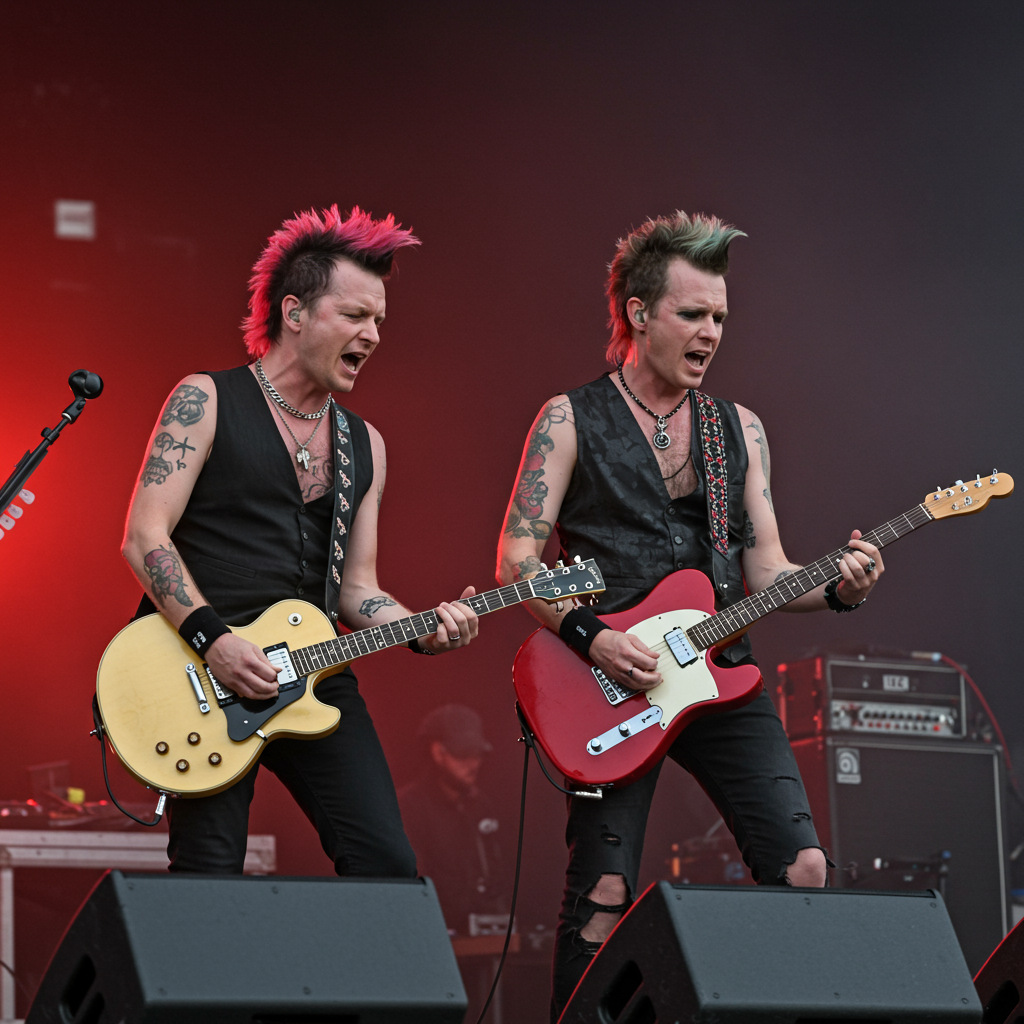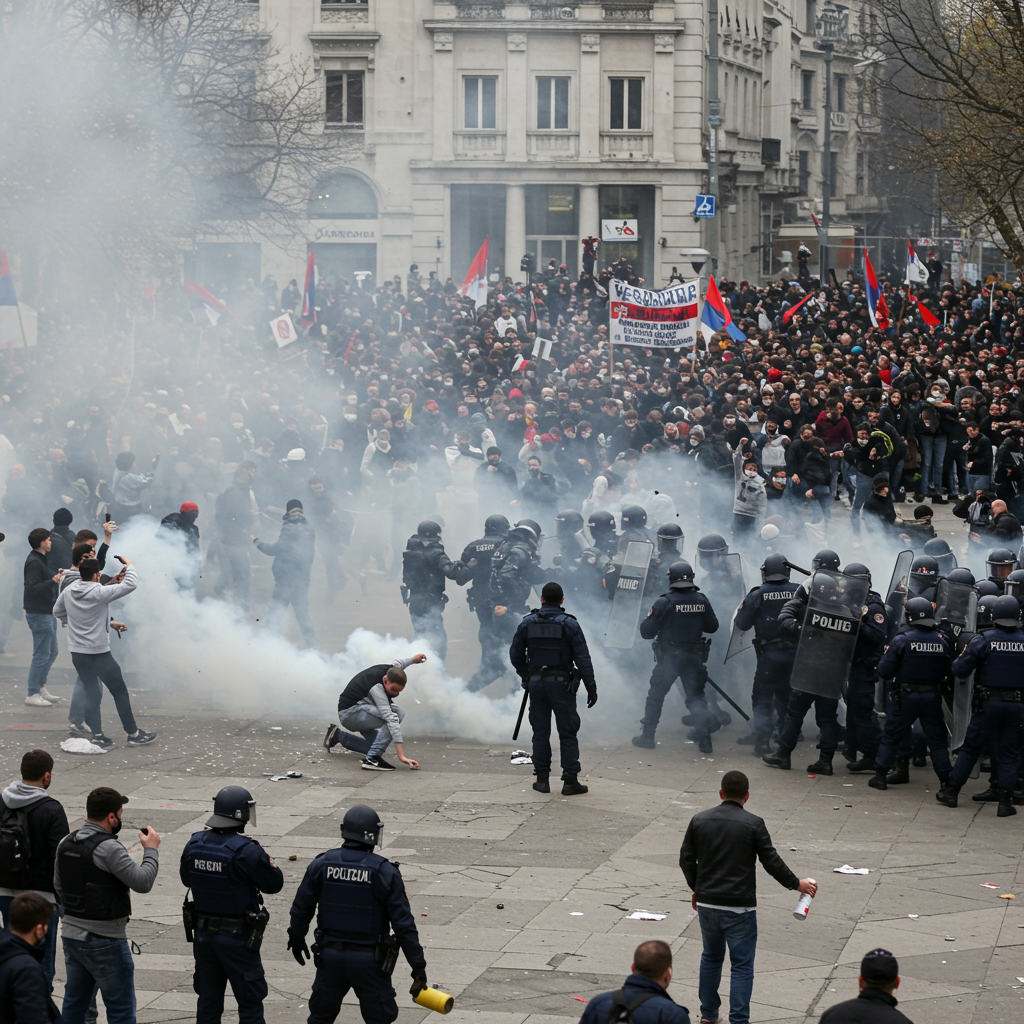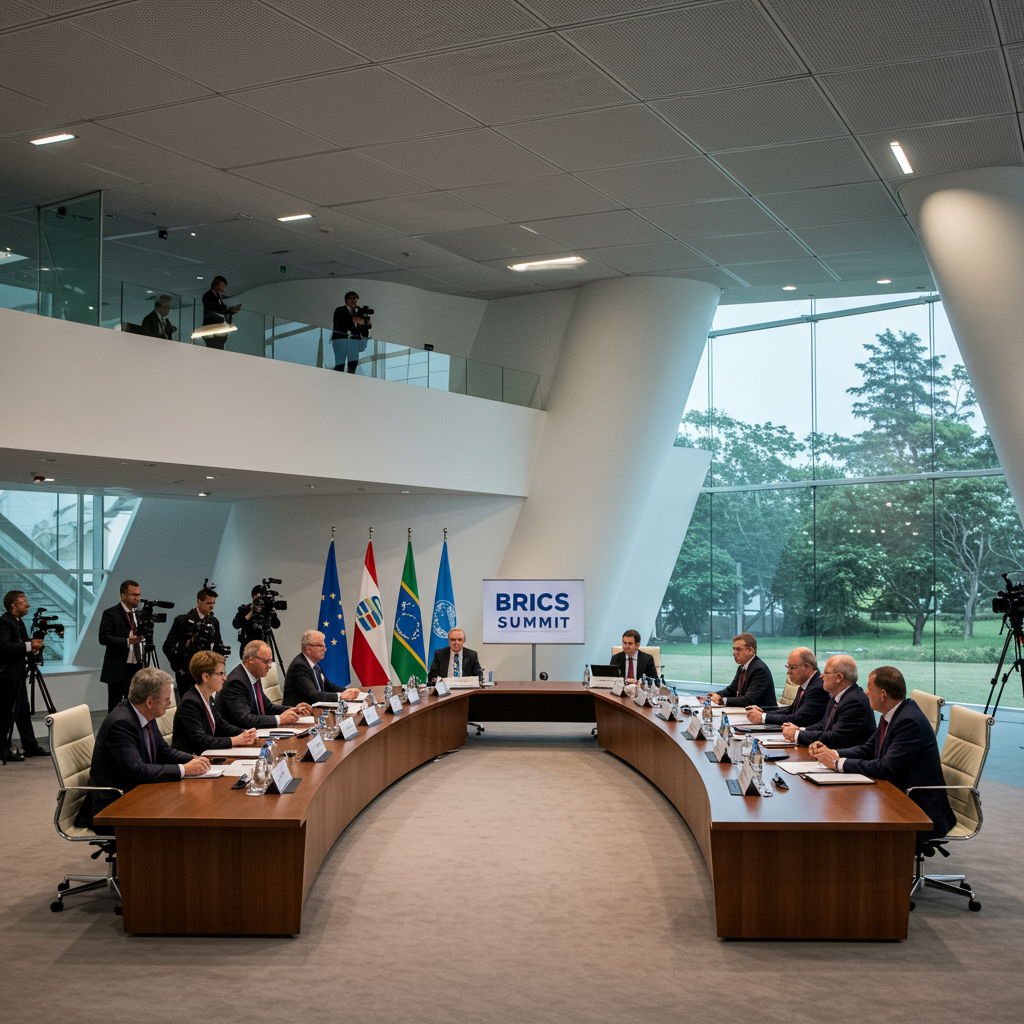A significant controversy erupted following punk duo Bob Vylan’s performance at the recent Glastonbury festival. The BBC, the event’s official broadcaster, has now admitted a crucial failure in its handling of the live stream. This comes after the corporation initially deemed the band “high risk” ahead of their set, during which controversial chants and comments were made, raising serious concerns and leading to apologies from the highest levels of the organization.
Bob Vylan Flagged as “High Risk” by BBC
Prior to the Glastonbury festival, the BBC undertook a standard risk assessment process for all performing artists. This review aimed to identify any potential issues that could arise during broadcasts. Based on this assessment, Bob Vylan was categorized as one of seven acts considered “high risk.” This designation typically signals a potential for content that might violate broadcast standards or cause offense.
Despite identifying these risks, an internal decision was made to permit live streaming of these acts. The rationale was that any potential compliance issues could be effectively managed in real time. This plan relied on applying language or content warnings directly onto the live stream feed as needed, rather than implementing a broadcast delay or pre-vetting the performance.
Controversial Performance Sparks Outcry
The plan for real-time mitigation proved insufficient during Bob Vylan’s performance on Saturday. The band led a chant of “death, death to the IDF [Israel Defence Forces]” during their set. This specific language drew immediate and widespread condemnation. Further controversy arose when the band’s singer, Pascal Robinson-Foster (performing as Bobby Vylan), spoke about a former record label boss. He referenced the boss’s support for Israel and a letter opposing another act’s performance, using the term “[expletive] Zionist.”
The performance was available via a live stream on BBC iPlayer, exposing a large audience to the controversial content as it happened. This direct broadcast of the sensitive material bypasses traditional editorial gatekeeping processes that might be applied to recorded or delayed transmissions.
BBC Admits Editorial Errors in Live Handling
According to the BBC, the live stream was being monitored by an editorial team in line with agreed compliance protocols. Issues arising from the performance were escalated internally. On two occasions, warnings did appear on the stream, indicating the content was flagged as problematic by the monitoring team.
However, despite the escalations and warnings, the editorial team present on site made the decision not to cut the live feed. The BBC has now explicitly stated this decision was an “error.” This critical failure meant the controversial chants and comments continued to be broadcast live to viewers.
Leadership Apologies and Accountability Measures
In the wake of the incident and mounting criticism, BBC leadership issued swift apologies. BBC Director General Tim Davie expressed “deep regret that such offensive and deplorable behaviour appeared on the BBC.” He specifically apologized to viewers, listeners, and particularly the Jewish community. Davie, who was at the Glastonbury site himself that day, was informed of the incident shortly after it occurred. He immediately instructed his team that none of Bob Vylan’s performance should be featured in any further BBC coverage or made available on demand.
BBC Chair Samir Shah also apologized, stating it was “unquestionably an error of judgement” to allow the artist to express what he termed “unconscionable anti-semitic views live on the BBC.” Shah noted Davie’s quick action in removing the performance from on-demand services once informed. Despite criticism from some quarters, the BBC board has publicly backed Tim Davie and his response.
The BBC has stated it is taking action to ensure “proper accountability” for those responsible for the failings in the live broadcast. While details are not public, BBC News understands that a number of staff members from the music and live events team have been moved off their day-to-day duties as part of this process.
External Criticism and Pressure Mount
The BBC’s handling of the live stream drew sharp criticism from various external figures and bodies. The UK’s Chief Rabbi, Sir Ephraim Mirvis, publicly criticized the corporation. Media regulator Ofcom stated the BBC had “questions to answer” regarding the incident. Culture Secretary Lisa Nandy addressed the issue in the House of Commons, stating she had questioned the BBC regarding their due diligence, senior oversight, and the delay in pulling the feed. Nandy emphasized that given the serious impact on the Jewish community, she would expect “accountability at the highest levels” within the BBC.
Glastonbury organizer Emily Eavis and UK Prime Minister Keir Starmer also condemned the chant itself, with Starmer calling it “appalling hate speech.” The incident adds to existing pressures on Director General Tim Davie, who is also awaiting a report on a controversial documentary and has faced a letter from BBC insiders critical of the broadcaster’s coverage of the conflict.
Immediate Policy Changes Announced
As a direct consequence of the acknowledged failures, the BBC has announced immediate and significant changes to its policy regarding live streaming music events. The corporation stated that going forward, “Any music performances deemed high risk by the BBC will now not be broadcast live or streamed live.”
This policy shift represents a major change from the previous approach of relying on real-time mitigation. It indicates the BBC recognizes the limitations and risks inherent in live broadcasting potentially controversial content, particularly for acts already identified as likely to cause issues. The BBC is also reportedly developing more detailed guidance on when a live stream should be withdrawn. Dedicated editorial policy support is now expected to be available on site at major music events to assist teams in making real-time decisions.
Consequences for Bob Vylan
Beyond the repercussions within the BBC, the controversy has also led to significant consequences for Bob Vylan. The band has faced multiple booking cancellations since the Glastonbury performance. These include festival appearances in Manchester and France, as well as a slot in Germany. Their agency, United Talent Agency (UTA), has also reportedly dropped the duo. Furthermore, their U.S. visas have reportedly been revoked.
Avon and Somerset Police have launched a criminal investigation specifically into the comments made by the band during their Glastonbury set. Separately, London’s Metropolitan Police are also investigating comments allegedly made by the band during an earlier concert at Alexandra Palace in May.
Bob Vylan’s Response to Backlash
In response to the cancellations and the public and media focus, Bob Vylan has issued statements reiterating their position. Following the cancellations, the band stated to followers that “Silence is not an option.” They added, “We will be fine, the people of Palestine are hurting,” indicating the context of their protest.
In a statement issued after initial media coverage, the band sought to clarify their intent. They stated, “We are not for the death of Jews, Arabs or any other race or group of people.” They added that they are “for the dismantling of a violent military machine,” implying their chants were directed at the Israel Defence Forces specifically, not the Jewish people generally. The band also suggested that they, and the sanctions they receive, are a “distraction from the story,” implying the focus should remain on broader geopolitical issues.
Frequently Asked Questions
Why did the BBC classify Bob Vylan as ‘high risk’ before Glastonbury?
The BBC conducts a standard risk assessment process for all acts performing at major events like Glastonbury. This process identifies acts that may potentially cause compliance issues or broadcast standards concerns based on their known material or public statements. Bob Vylan was flagged as “high risk” along with six other acts, suggesting their previous work or expected performance content triggered concerns during this review.
What specific errors did the BBC admit making during the live stream?
The BBC admitted two primary errors. First, they deemed “high risk” acts suitable for live streaming based on an insufficient mitigation plan that relied only on real-time warnings, stating this “was clearly not the case.” Second, even after issues were escalated and warnings appeared on the stream, the editorial team on site made the decision not to cut the live feed. The BBC explicitly stated this decision was an “error,” allowing the controversial content to continue broadcasting live.
What actions has the BBC taken following the Bob Vylan controversy?
The BBC has announced immediate changes to its live music streaming policy: “High risk” performances will no longer be broadcast or streamed live in the future. They are also developing more detailed guidance for withdrawing live streams. Internally, the BBC is ensuring “proper accountability” for those responsible for the live broadcast failings, with reports of staff being moved off their duties. Director General Tim Davie also instructed that the performance be removed from on-demand services.
Conclusion
The Bob Vylan controversy at Glastonbury highlights the complex challenges public broadcasters face in balancing live event coverage with editorial responsibility. The BBC’s admission that the band was pre-identified as “high risk” underscores the critical failure in their mitigation strategy and the subsequent error in not cutting the live stream despite warnings. The incident has triggered apologies from leadership, led to internal accountability processes, and resulted in immediate policy changes to prevent similar occurrences. While the BBC takes steps to address its internal failings, the band faces significant professional consequences and police investigations, demonstrating the wide-ranging repercussions of the controversial performance. The event serves as a stark reminder of the volatile nature of live broadcasting and the heightened scrutiny surrounding sensitive political commentary on major public platforms.
Word Count Check: 1188



